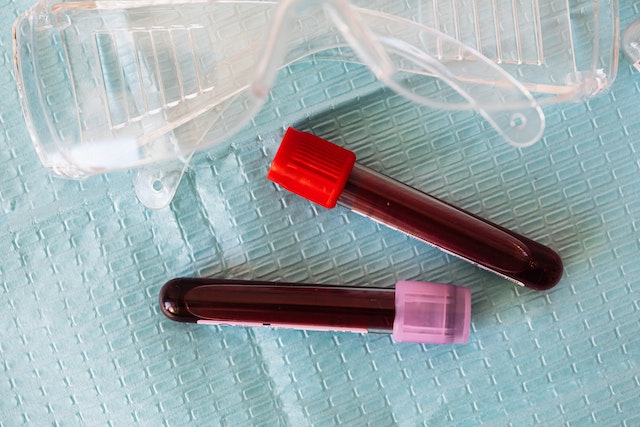A blood test called estimated glomerular filtration rate (eGFR) measures how well your kidneys filter blood. GFR is the amount of blood filtered every minute by tiny filters in your kidneys called glomeruli.
Your eGFR is calculated by combining the results of a blood test for creatinine with other information like your age and sex. Your test result is usually displayed in milliliters per minute per 1.73 square meters of body surface area, or mL/min/1.73m2.
Contents
Creatinine
When you have a blood test, a medical professional will use a needle to draw a small amount of your blood. You may feel a prick or sting when the needle is put in, but this usually goes away after a few minutes.
Then, the blood is sent to a laboratory for testing. A technician will measure the amount of creatinine in your blood to see how well your kidneys work. The doctor will then use the results to determine your estimated glomerular filtration rate (eGFR).
This is a mathematically derived measurement based on a patient’s age, sex, and race. It is typically reported along with a serum creatinine result and uses some recognized and well-validated formulae.
Your eGFR will also tell your doctor what chronic kidney disease stage you are in. The lower your eGFR is, the worse it is.
If your eGFR stays below 60 for three months, your doctor will diagnose you with chronic kidney disease. They will suggest tests to find out what is causing your low eGFR and whether there is any way to treat it.
Sometimes, your doctor will use a creatinine clearance test to determine what’s causing your low eGFR. The test measures how much creatinine is cleared from your body every minute by your glomeruli.
Albumin
The EGFR blood test normal range is 90 to 120 mL/min/1.73 m2. This is how much blood passes through the kidney’s tiny filters (glomeruli) in one minute.
This number is used to help doctors diagnose and manage kidney disease at an early stage. It also helps to monitor the condition over time. It is based on your age, gender, and body size.
GFR declines with age, so older people have lower than normal GFR levels. The normal eGFR level is usually 90 or higher, although it can vary by laboratory.
An eGFR is an estimated value of your kidney function based on your creatinine level and other factors such as age, gender, and race. It can be useful to measure your eGFR because it gives more information about your kidneys than the traditional serum creatinine measurement alone.
If you have a high eGFR, the doctor may order other tests to determine if you have kidney disease and how severe it is. Other tests include a blood test, ultrasound, and kidney biopsy.
A higher eGFR is often linked to kidney damage or chronic kidney disease (CKD). This is why your eGFR will be checked throughout the early and later stages of CKD, including end-stage renal disease (ESRD). Your doctor may use these results to plan for treatment and to follow up on any symptoms you might have.
Vitamin D
Vitamin D, also known as ergocalciferol and cholecalciferol, is produced in the body from sunlight, so it’s important to get enough of it. Vitamin D deficiency can lead to conditions like rickets and osteomalacia, which are weak bones that break easily. In addition, vitamin D deficiency can increase the risk of cardiovascular disease and certain cancers.
If you are concerned about not getting enough vitamin D, you can talk to your doctor about taking a supplement. Most doctors recommend a daily supplement containing at least 400 IU of vitamin D.
Some doctors also use a blood test to measure your vitamin D levels. The test involves collecting a small amount of blood from your arm.
Test results are usually available within a few business days after the blood sample is collected. They can be provided to you by your doctor, sent to your mailbox, or made available online through a secure health portal.
If you have low kidney function, your doctor may want to take more tests to find out if you have a condition that interferes with your kidney’s ability to remove waste products from your blood. For example, suppose you have a family history of kidney disease or blood pressure problems. In that case, your doctor might recommend repeating testing or measurement of cystatin C, another biomarker of kidney function.
Vitamin K
Vitamin K is a fat-soluble (dissolves in fats and oils) vitamin necessary for making several important proteins in blood clotting and bone metabolism. It also helps the body maintain healthy bones and regulates blood calcium levels.
A deficiency of vitamin K is rare, but it can cause problems with blood clotting. In severe cases, this can lead to bleeding that could be life-threatening. This is most common in newborns who aren’t getting enough vitamin K from their mother’s milk.
This vitamin is found in green leafy vegetables, liver, and vegetable oils. It is also made by bacteria that live in the intestine. People with diabetes or who are pregnant or breastfeeding may need to take a daily supplement to get enough of this nutrient.
It has been shown to reduce the risk of cardiovascular disease and certain cancers. It is thought that this is due to its ability to prevent the buildup of plaque in arteries and decrease inflammation in the body.
Vitamin K deficiency symptoms include easy bruising and bleeding, which can result in nosebleeds, bleeding gums, blood in the urine or stool, and tarry black stools. It may also cause extremely heavy menstrual bleeding. In infants, it can result in life-threatening bleeding within the skull (intracranial hemorrhage). Those with liver disorders are at increased risk for bleeding because clotting factors are made in the liver.



